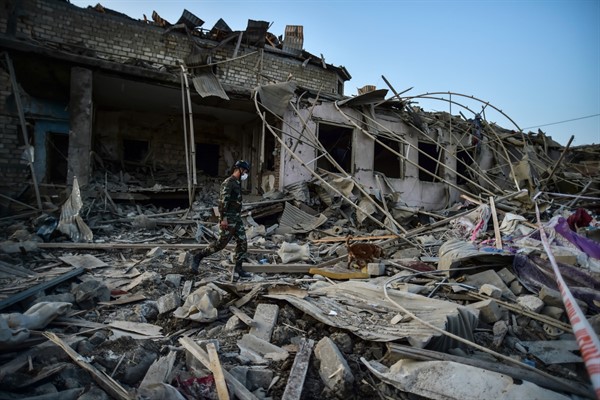Until late last month, the conflict between Armenia and Azerbaijan over the disputed territory of Nagorno-Karabakh had been mostly frozen, with occasional skirmishes, for over a quarter of a century. One notable exception was the April 2016 “four-day war,” a brief but intense period of fighting that left over 200 people dead and was followed by claims of victory from both sides. The recent fighting that erupted on Sept. 27 has been much more intense; over 600 soldiers have been killed on the Armenian side alone, along with scores of civilians and an undisclosed number of Azerbaijani personnel.
While the fighting is officially between Azerbaijan and Nagorno-Karabakh’s ethnic Armenian population, in reality, it includes neighboring Armenia, which effectively administers the self-declared and unrecognized Nagorno-Karabakh Republic. Another direct belligerent, albeit an unofficial one, is Turkey, which in recent months has conducted joint military exercises with Azerbaijan and has been providing it with military and technical assistance for many years.
There are several reasons why the conflict has flared up again. First is the lack of progress by the so-called Minsk Group, which was set up in 1992 under the auspices of the Organization for Security and Cooperation in Europe to mediate a permanent peace agreement between Armenia and Azerbaijan. Co-chaired by France, the United States and Russia, the Minsk Group is increasingly seen in the region as ineffectual. Frustration with the lack of progress in resolving the conflict has been more visible among Azerbaijani leaders, who have been arguing for decades that their country’s territorial integrity is being violated by Armenia. Authorities in Nagorno-Karabakh counter that the enclave’s majority ethnic-Armenian population is merely exercising its right to self-determination.

